Plot Twists in Fiction: Making a Story Standout
***Warning!! This article contains spoliers for The Da Vinci Code by Dan Brown, Oystercatchers by Susan Fletcher, Wise Children by Angela Carter, Jane Eyre by Charlotte Bronte, Oliver Twist by Charles Dickens, Rita Hayworth and Shawshank Redemption by Stephen King and I am the Messanger by Markus Zusack***
From the truth about Dennis Lehane’s Shutter Island to George R.R. Martin’s Red Wedding, there are few things in fiction more memorable than a good plot twist. When the plot is driving in one direction, a writer quite often surprises the reader with something entirely different and unexpected. A twist can be used in any genre of fiction to stop a story from becoming predictable or expose character traits. The power of the plot twist can be guttural to a reader, but how do good writers go about making a twist so compelling?
The first thing to bear in mind is that books can have their plot twisted in a number of different ways and some twists are more suited to certain genres. Sometimes the twist will be subtle, revealing a little bit of character, whilst at other times they will change the course of the plot or even your entire understanding of the book. A good writer decides the kind of twist the novel needs. Below are some examples of different twists and how good authors have used them in the past.
Something Fishy’s Going On
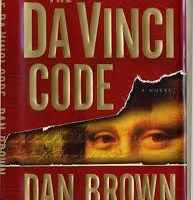
If there is a plot point a writer really wants to keep hidden from the reader, they sometimes throw a few red herrings into the stew-pot. A red herring leads the reader away from the main plot by making certain things seem more important than they really are. A writer could make the protagonist chase a lesser villain or show an innocent boyfriend in a dubious situation. Red herrings serve to distract the protagonist, and therefore distract the reader, from the plot revelation. This kind of twist is often used in crime or thriller fiction.
Despite dividing critics about how good or bad the writing is, most would agree that the plot of The Da Vinci Code by Dan Brown is, on first reading at least, surprising. Among the many twists, Bishop Aringarosa is a clear example of a red herring. (Too clear if you speak italian as his name litrally translates as ‘aringa’ = herring and ‘rosa’ = red.) Protagonist, Robert Langdon, spends most of the novel certain that Aringorosa is the one killing people to find the Holy Grail. The bishop is seen to have a strong influence over Silas, who we know killed Priory Grand Master, Jacques Sauniere, at the start of the book. This knowledge distracts both Robert and the reader from the unexpected mastermind of the plot: Sir Leigh Teabing, the frail old man and mentor of the hero.
Red herrings should be used with caution – too many false leads can make a plot lose focus and the readers will smell something… well, fishy.
It’s All Lies
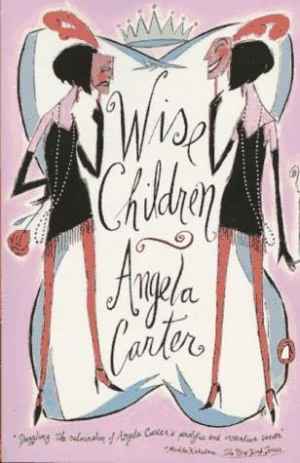
There is a certain type of book and certain type of author who delights in outright lying to their reader. This certainly surprises the reader, but it is difficult to achieve without annoying or disengaing them.
An unreliable narrator can make lying to the reader acceptable. Unreliable narrators tend to be first person because they are always more subjective. They may have a skewed vision of reality (because of bad mental health, for example) or admit their own fallacy (such as poor memory.) Conversely, they could insist they are telling the truth throughout but contradict it with their actions.
Wise Children by Angela Carter uses an unreliable narrator to make the magic realism of events more acceptable. The story is told by Dora Chance, a 75 year-old ex-actress who the reader cannot entirely believe. Dora’s narration confesses her bad memory:
“I have a memory, though I know it cannot be a true one…”
Admits to withholding information from the reader:
“No. Wait. I’ll tell you all about it in my own good time.”
And tells us of increasingly magical events:
“She’d got a fishbowl on her head with a fish in it. I kid you not.”
At the end of the book, two characters miraculously come back from the dead (more on this type of twist below) and twin babies are pulled out of the pocket of an ordinary coat like a magic trick. These events seem magical, yet happen in a world equivalent to ours. The slow revelations of an unreliable narrator make the end events surprising, yet believable within the context of the story.
Whichever way the narrator is unreliable, it can allow plot twists to arise more naturally: Once a reader is accepting of the unreliable, they are more likely to accept the unbelievable.
No, Not Her!
Nothing can shake things up quite like killing a beloved character unexpectedly. When characters die without warning the readers are saddened, but so long as it is done with reason they will forgive the writer. Death is a great catalyst and can be used to move the plot along or develop character. A protagonist is weak? The writer kills the parent they rely on. An antagonist wants the throne? A writer may kill the current king.
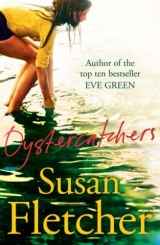
George R.R. Martin is an obvious example for the death plot twist, but whilst his A Song of Ice and Fire books are not complete without a grusome killing, death is commonplace is everyday life and can be seen in all forms of fiction. In Susan Fletcher’s Oystercatchers, a boy called Ray reaches out to the stoic protagonist, Moira, through letters. Moira has been shown to be a belligerent and independent character up to this point, even ignoring contact from her family, so she initially ignores Ray’s letters. Because of this, Fletcher had to introduce a stimulus before Moira could send a letter back:
“Ray,
Our housemistress died last week… She was only thirty-six, and she told me I should keep all of your letters…So no – I haven’t thrown your letters away. I read them. I am angry with you, sometimes, and confused because why do you write them? But I read them.”
By killing the person that encouraged contact between Ray and Moira, it allows Moira a change of heart without undermining her character portrayal. This is a good example of how killing off a character need not be overly dramatic: It will always rouse both characters and readers. A death will be catastrophic at any point in a novel, but it is most unexpected in moments of calm or after a victory.
But, how?
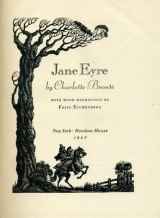
If a character is killed or established as dead early on, the effect a resurrection will have on the characters, plot and reader will always be tremendous. Did they fake it? Were they only injured? Or were they truly dead and a miracle has happened? How the writer brings a character back will depend on the genre of the writing (a Jesus-like resurrection in a rom-com would certianly seem a bit extreme!)
Jane Eyre by Charlotte Bronte could have finished at chapter 26, when Jane is to marry the ‘widower’ Mr Rochester. But then, during the wedding:
“‘The marriage cannot go on: I declare the existence of an impediment.’
…The speaker came forward and leaned on the rails. He continued, uttering each word distinctly, calmly, steadily, but not loudly —
‘It simply consists in the existence of a previous marriage. Mr. Rochester has a wife now living.’”
Like all good resurrections, revealing that the first Mrs Rochester is still alive not only explains some unusual goings-on in the book, it also pushes the plot in a new direction. Unsurprisingly, it also changes the relationship between Jane and Mr Rochester, allowing for another twelve chapters before we have our well-earned conclusion.
Resurrections will only be effective if the returned character is important to the other characters or plot, or both. Even a rat returned from the dead can be effective if there is a reason behind it.
I remember that…
When something small and seemingly insignificant turns up later in the plot as a major player, it is called a Chekov’s Gun twist. This twist was named after Russian playwright Anton Chekov who said: “One must never place a loaded rifle on the stage if it isn’t going to go off. It’s wrong to make promises you don’t mean to keep.” Every element mentioned in a good story should be relevent.
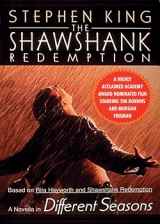
One reason the Harry Potter series by J. K. Rowling is so universally accredited is the use of Chekov’s Gun. The Horcruxes and Hallows, which are cruical to the resolution of book seven, turn up as early as book one, even though they are not explained in full. Likewise, Rita Hayworth and the Shawshank Redemption by Stephen King is a well-crafted short story that uses this twist to its advantage. The rock hammer Andy Defresne requests near the start of the story to create sculptures is later used in the resolution.
Chekov’s Gun twists always give the impression of a well-crafted plot, so long as the writer is subtle. If a writer is too obvious with foreshadowing, if characters keep mentioning a paperclip that is out of place and later turns out to be the murder weapon, it spoils the surprise. A nod-nod, wink-wink to the reader is unnecessary as the item itself is the foreshadowing.
He had it coming
In life, people do not always get what they deserve. In fiction, they can. Poetic justice reverses the fortune of a story’s characters, often in an ironic way. Good characters get good fortune, bad characters get their comeuppance.

In Oliver Twist, Charles Dickens paints Bill Sikes as an evil character who beats Oliver and the boys and kills his lover, Nancy. At the end of the book, Sikes is chased by a mob demanding justice for this crime and accidentally hangs himself with the very rope he was using to escape. This is poetic justice with an ironic flourish because hanging is what awaited a murderer like Sikes in Dickensian Britain, so the ending punishes vice. Virtue, on the other hand, can be rewarded with poetic justice. Many comedies work on this principle. Shakespeare’s The Tempest is about a wronged Duke and his daughter cast away on an island. By the end of the play the Duke is vindicated and his daughter married to a prince.
Poetic justice is often used at the end of a story to confirm the idea that good will be rewarded and evil will be punished. It is less commonly found in the middle of a book, but when it does, it makes the twist all the more surprising.
Aha!
Near the end of a story, the protagonist may think they know everything, and the narrator has been informing the reader of everything they know. But something surprising is unveiled in a last minute revelation. A letter might be found, a spy might change sides, some evidence is discovered. This is a great plot twist for revealing the true nature of a character – even the protagonist.
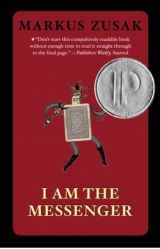
In I am the Messenger by Markus Zusack, the main character, Ed, receives playing cards in the post that point him towards people he needs to help. The question throughout is, who’s sending the cards and why? At the end of the book, a man who looks exactly like the author on the dust jacket shows up, and hands Ed the answers:
“There’s a faded yellow folder sitting on a cushion. ‘It’s all in there,’ he says. ‘Everything. Everything I wrote for you… You probably want to go through that folder and check for consistency. It’s all there.’”
The fictional-author explains that there is, in fact, nothing special about Ed. Everthing in the book happened simply because the author decided to write it and by writing it the character Ed lived it. The author’s story became the character’s reality.
The revelation twist involves a lot of exposition, so it will often be seen after a scene of great pace and excitement and it will quite often be at the climax of a novel.
Which Twist?
A good plot twist is not about adding any random element to a story. It has to be consistent with the rest of the novel to make a reader say “I should have seen it coming” rather than “that makes no sense whatsoever.” Some plot twists are helpful for developing character, some for driving plot forward. To execute it smoothly, a good writer chooses the one that fits in best with the overall storytelling style and uses foreshadowing to make the twist seem consistent.
A writer can turn the world of a novel upside-down with a plot twist. The reader should not see it coming, but a writer should know everything and, like a good friend, prepare a reader for the fallout.
What do you think? Leave a comment.


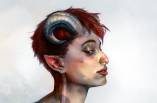




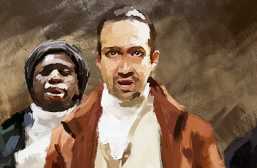
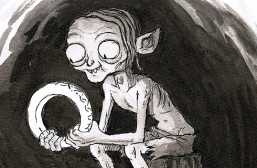
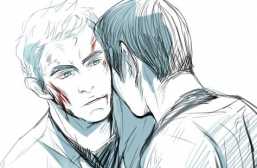

Oh I love this! I’m a big proponent of the plot twist. I hadn’t heard of Chekov’s gun though. Very interesting!
Oh thank you! Glad I could introduce you to it 🙂
I love the way you used different examples of how to utilize a good twist in a book. I totally agree that the best twists are the ones that are there from the beginning, but are so subtle that the audience starts kicking themselves realizing ” of course, it was there from the beginning,” this is why films like The Sixth Sense, Oldboy, and Fight Club have grey twist endings. Awesome article.
Thank you 🙂 I was going to talk about Fight Club for the unreliable narrator but I have neither seen it nor read it so I wasn’t sure how to get a good quote! I’m really trying to forget I know the twist before I watch the film…
Twists are fun both to read and to write. Hard to beat that gleeful feeling when a reader gets snookered in. :p
The last story I wrote included a twist ending. My critique group liked the twist, but pointed out that I didn’t tie up the main plot question on which I spent 75% of the story >_< I fixed it in the rewrite and I think it came out well!
Yes keeping it consistant is sometimes tricky. Always good to share work with a group.
After “The Sixth Sense” crazy plot twists began to show up everywhere and created a new season of predictability. It seemed that any old “twist” would pass for a full-out “plot twist” – not true.
I’d just add that plot twists need to be in line with the plot and also plausible. It happens much too often for my taste that an author wants a twist and contorts like heck to get it.
As a general rule, one coincidence per 300 pages of writing is the maximum that plausibility can sustain!
As I say, it definitly needs to be consistant with the rest of the novel, but that does mean that plausibilty is subjective. The twists in Wise Children are not very plausible, but that fits in with the narration style so it works…
One example of a boring and predictable book with an unbelievable plot twist by far is The Chronicles of Vladimir Todd. The author doesn’t foreshadow it EVER. It doesn’t even make sense in the slightest way. This series also has multiple other examples of bad writing.
Ha I will try and avoid that then! Although I am now intrigued…
The purpose of a plot twist is to to shock or surprise the reader, they not suppose to give out any hint.
I always wanted to write a believable plot twist!
Do it! Pick and style and see what you can do…
For character twist, I’m thinking of Luke from The Titan’s Curse.
My father has seen GONE GIRL twice in theater. After he saw it the first time, he talked my mom into going to see the movie and took me to see it with him. We are STILL talking about the twists and ending choice. I am dying to read the book to see if I can garner any extra clues into the character’s motivations. That style of writing is my aspiration…
Gillian Flynn employs the Chekov’s gun tactic really well in her books – if you liked Gone Girl, I would definitely recommend Dark Places and Sharp Objects!
I enjoyed the elaboration on some methods I only really knew of. This article serves as a guide to some improvement in writing, which I can appreciate. Thanks.
Thank you, glad you enjoyed it.
Very well written article! I’ve actually never seen the concept of “Chekhov’s gun” being applied to plot twists; generally I’ve always just seen it involved in playwrighting–as you mention Chekhov claims a gun on stage must go off. On a personal note, I’ve never been a huge fan of plot twists–in general, I think there must be something lacking in the ability of a writer if he or she relies on it too much.
I always feel that crafting a story is the same for novels and plays, it’s just pacing and structure that is different between them really.
Cool article… love the Chekhov’s Gun section. A great writer to look at for surprise ending is Flannery O’Connor. Her endings are always revelations and surprises, though they seem inevitable too.
Thank you, i shall check her stuff out!
Great article. I now have a new place to procrastinate!
Nice article, wonderful!
Of course my favorite twists come from movies, for instance “the sixth sense”, or “the others”.
Thanks!
Yes, movies always have very clear examples, gives the audience less time to see te twist coing maybe?
Keeping your upcoming twist in mind as you write your story makes all the difference as it gives your twist much more “oomph” when it is eventually revealed.
Definitly, adds into the the fact that as a writer you know what’s going on, and your twist feels earned
This post is interesting, but I find I struggle with even coming up with the initial conflict, let alone sub-plots and other conflicts and ways to fuck with my character. I sit down to write and wind up babbling about the color of the character’s area rug in her bedroom and how bored she is with iced tea or something.
You should try using an unreliable narrator, they are great for poetic babbling 🙂
I like killing off characters. Especially characters no one expects to die. 😀 It’s always a good way to get the plot going again if you’re running out of steam.
George Martin, is that you?
Plot twist could be planting tiny little details and then suddenly all these tiny details add up to a major shock. Say someone mentioning their dress label means the label could be found in a murder scene, meaning that person was the murderer!
Yup ‘Checkov’s Gun.’ Everything a writer tells a reader has to be earned. It’s always intresting to think if the twist comes first and the plant comes in re-writes or if the twist arises out of previoudly written details..? Different for each writer i think!
Great article. As a screenwriter, plot twists are something I’ve always strived towards getting exactly right.
Wow. Oliver Twist and Da Vinci Code are perfect to make your point. I salute your mention of these novels.
Very interesting article. Thank you for all the information and examples. I appreicate you sharing your knowldege of plot twists.
Thank you, i’m glad you enjoyed it, hope it helps 🙂
I love plot twists! For me, it’s usually the identity of the killer. I like to keep the reader guessing until the final chapter.
As I’m writing a series, I’ve been aware that they may not be read in order. As in Star Wars – where once in the know (or if one watches the newer movies first) the irony of the situation between Luke and Darth Vader gives a different but still worthwhile viewing experience.
Nicely written
As an ardent fan of great plot twists I found this article fascinating as well as inspiring.
I am just laying down the bones of a story. I was worried that the story might be too straight-line. But sometimes real life sneaks into the writing. When I’m stressed I tend to feed all my characters and send them to bed. (At least in the rough draft)
Thank you for this post! I’ve been a silent lurker of this wonderful site for the past month or so, but I don’t see any harm in being a more vocal follower.
Glad I could lure you in! Thanks for commenting 🙂
Interesting things to consider about plot twists. Hadn’t thought about it beyond foreshadowing and making sure they make sense.
Make the twist integral to the plot, allowing it to create interesting stories and keeping re-readability.
I have plot twists in my debut novel and lots of foreshadowing and plot twists in my previous work. Love them and love when my readers say they couldn’t figure them out and were surprised.
Its like you people have read my mind. I am currently planning a plot twist, several actually, huge ones.
Ooo glad I could fortuitously help!
p.s. Look forward to seeing my name in the ‘thanks’ section?
My story LIP has several big plot twists! 🙂
When one of my friends recently told me that the novel that I’m writing seems cliched, I became dissolved in anxiety and started thinking “You really thought you could do it?”
Sometimes I think cliched is fine if you can find your own voice for telling it. An interesting narrator or paticularly original description etc.
I really like bringing the reader into the mix. This is one of my current favorite tactics. I also truly love reversing character roles, even when allegorical animals are the featured “speakers.”
Yes, have a snake as the hero or something!
Excellent information.
Great job! Again, I always feel that any twist has to be properly laid out…even one that seems “so out of left field.” A twist that is just there for the sake of a twist, without properly laying the groundwork for it, is unbelievably lazy to me and a fundamental cheat for any writer or filmmaker. I think it shows a lack of trust in your own material and that you don’t feel the story is strong enough without the inclusion of a “jolt” that comes from a surprise twist.
Yes I totally agree, it definitly shows a lack of cohesion, no excuses for it really!
Too much of this post was just goddamn brilliant.
ALL of that comment was amazing, thank you! Glad you enjoyed it.
I’m writing my own novel! I couldn’t seem to find a plot twist that wasn’t cliche.
Good luck! Perhaps try alterting the manner or time you reveal the twist, or playing with reactions a bit? Mix up the timeline, or reveal something interesting about the characters by their reaction?
I wrote a fanfiction once (shh dont judge me) with a huge plot twist in it and everyone got so mad i had to delete three chapters and rewrite them. Plot twists kill.
fanfiction is always tricker for that stuff because people are soooo attached to the subject.
Stories with shocking or twist endings leave a reader thinking and talking about the book for days to come.
I think a majority of twists are just cheap ploys, not to say that there is anything wrong with manipulation of one’s audience, just that it should be coherent to not discredit what came before it. I think that they really work and should only be used in exceptional cases, but should rarely be actively sought. Then, you are not telling a story, you are just selling a twist.
I agree they definitly need to be coherent. But having a good idea of how structure works can turn a ‘good story’ into a well crafted book. The best books are a mixture of story and substance. You can tell the story in a first draft, but then edit for technical proficency in other drafts to create a GREAT book!
My story has at least 2 plot twists, maybe three! Yay!!
I don’t find anything wrong with a good plot twist. Though plot twists can sometimes be tired and overdone, these guidelines are pretty solid for creating some that are subtle and interesting.
Thank you, subtle is always good when setting up twists
Insightfully written! I’ve also never heard of the Chekov’s Gun, but now having these techniques laid out in front of me is starting to turn some rusty writer gears!
Fantastic! Hopefully it will help 🙂
This piece is interestingly informational. Great work.
Thank you very much 🙂
I love being duped by a good author, it drags me even deeper into the book. Thank you for sharing, maybe one day I can have that same effect on other readers.
Thank you for reading 🙂
Thanks for this. Good tips. Twists can be very compelling, but also hard to do well.
Yes, I have to admit I am much better at pointing the finger than holding the pen when it comes to twists – know what works in everything but my own work!
This is a wide-ranging piece which shows your depth with a variety of authors and you offer much insight into the plot twist technique. Also, I love the inclusion of the Waterhouse painting – my favourite visual artist!
Thank you! I’m glad I picked a good picture 🙂
Plot twists sometimes annoy me because, they go beyond my expectations. Still amazing though.
Very informative.
It’s definitely an experience for me to come up with some of those things, since most of the time, I’m bemoaning over that I’m not the one to enjoy the surprise, as the author. But about these twisters, the real challenge lies in keeping the seamless tone of these surprises, as it is easy to give away when you have an artificial and unnatural vibe to the setting. Plot twists have to be genuine when they occur, and while they are ways for them to ruse and deceive, it won’t make a difference if it distracts away from what makes sense as you go in the story. Because that’s when a mystery works its best, when the pieces were in place, just as you thought you had it.
I love that with fiction you really can make anything possible. Great article.
Thanks for reading 🙂
Great article, very helpful!! Thanks!
The most intriguing plot twists have minuscule hints throughout the story. So small, that the twist appears to show up out of nowhere; but if you backtrack and reread, you notice them.
Interesting take on plot twists.
This is such a well-written and informative article! It flowed really nicely, and I enjoyed your references to other works; they helped support the topic well. Plot twists can be hard to construct and execute properly but, when done right, it can add such depth to a story. Something I’ve found which can help construct a twist is using an outline and planning it right from the beginning. I also enjoy using the unreliable narrator in my writing; there is just something fascinating about not being able to trust your own protagonist. Anyways, thank you for the helpful and insightful article!
Thank you! Yes, I love the unreliable narrator, always interesting to see the different characters.
Nice article. It’s interesting to see how a plot twist can sometimes make or break a book. However, I don’t think that a writer can rely only on twists to achieve success. Sometimes a writer might be obsessed with delivering a mind numbing twist at the end of the book, and he or she might forget to create a compelling journey for the sake of a surprise destination.
But obviously, when it works, it’s fantastic. A smart and well planned twist can give a book a nice zap of energy that keeps you up all night.
So what do you think? Are we perhaps a little too obsessed with twists? Or is a plot only as good as it’s twists and turns?
We are definitely a bit too obsessed with them, particularly in TV and film. It has got to the stage that I can see a Chekov’s gun twist coming, and most films feel they need one in there… but maybe now it is more about how you execute that twist? You can tell a twist is executed well if it stands a second viewing/reading. (Shutter Island…) And perhaps we can use the principle of the twist in our regular plot-writing, like The Oystercatchers did – subtle rather than all-encompassing.
Really well writing. I like the examples, it really helped me see how these things work in practice. Thank you for writing this!
I always love a good Chekhov’s gun. In regards to George RR Martin, I’d say Ned’s death is super effective as perhaps the series’ first gut-punching, challenging plot twist because Ned could be seen as the first book’s protagonist, the hero character, and his abrupt death is super shocking and (literally) game-changing.
Great article with helpful advice.
Haha, game-changing… thanks for reading 🙂
For me, the gut-punching twist came when Jaime pushed Bran out of the window. I never saw it coming (although, looking back, I should have), and it changed the whole book series for me. It was then I knew that this was not your usual fantasy story.
There are few things better than finishing a book, sighing, and feeling all the goosebumps take over when you ask yourself why you didn’t see that coming. The shock!
So glad you wrote this! You immediately reminded me of “The Bone Collector,” as well!
I never thought that authors of fiction use the fallacy such as red herring. I thought only politicians used it, hahah. The red herring strategy for writing and film is a good one. As an author you want to stir away your reader away from the real murder or thief, which is usually the most innocent looking person who committed the crime. Often times when most people read books or watch films they will think that whoever committed the crime is the person who seems tricky and sneaky.
I love plot twists. Especially the ones that are so subtly done that, on a second read, you can see the little details that have hinted to what is coming.
I like twitter very much
The plot twist in ‘Beautiful Mind’ actually made me feel like I had been hit in the gut! (But in a good way). Also magic tricks usually have strong plot twists and surprise endings.
This article was fun to read!
I like the part about the Chekov’s Gun twist and thank you for introducing the term. Doctor Who episodes are notorious for this which is one reason I love them so much. I admire the brilliance of it.
I don’t always love a surprise ending, particularly if it’s in a mystery because I like to try to solve it before the end.
Thank you very much for this article! I feel like a better writer already. In your opinion is it better to build a story around a twist or is it better to write the story and see which twist comes naturally?
Aw thank you! I think it is the same as anything, and it depends on your style of writing (and what you are writing). The Harry Potter series is a classic example where a writer (*purportedly) had the end in mind from the beginning, and pretty much worked around the Chekov’s Guns. You reach the end thinking ‘no way!’ A Death Twist might have to be pre-meditated, but something like the Poetic Justice could very easily come naturally. Whichever way you do it, editing and re-writes will make sure the twist fits.
This was such a good post that I even booked marked it for re-reading later. It’s funny because I have used some of these plot twisting elements in my own fiction writing without knowing, but your article has helped me see that I need to lay some ground work before inserting any type of plot twisting element.
Side note: I’m taking a detective fiction class, and I have been really confused on the definition of a “red herring.” Thanks for clearing that up.
Thank you, I’m so glad you like it. You’ll be doing an article on detective fiction I assume?
I love the article. It is helpful. Very helpful. Thank you so much
Whenever i am reading an interesting novel i try to think of how the plot will twist, never knowing this was actually what i was looking for before reading this article. Its always good to try to figure out whats happening next almost trying to finish the book in my head. My story never turns out correct now i know its intentional for the author to make these twists for the suspense of the book and i appreciate knowing this now.
I have never seen the elements of different plot twists broken down so elegantly. As I read the article I actually began to take notes as I felt it would be useful to consider when writing. This is a splendid article.
Wow thank you, glad I could help!
Great article, this will help a lot with my writings.
Love
The first time I read Jane Eyre, I remember being so shocked when I read about Bertha. Truly did not see it coming, so Charlotte Bronte really did that well.
I recall that plot twists originally were put in stories that were originally published in newspapers or magazines as a sort of marketing tool.
If it doesn’t have a plot twist, I don’t read it
Thanks for the examples I needed them, it makes twists much lest bague. This article is filled with typos, please fix them.
As is my comment, oops!